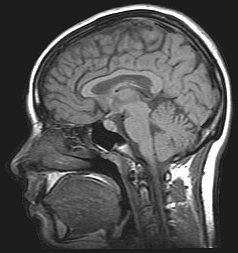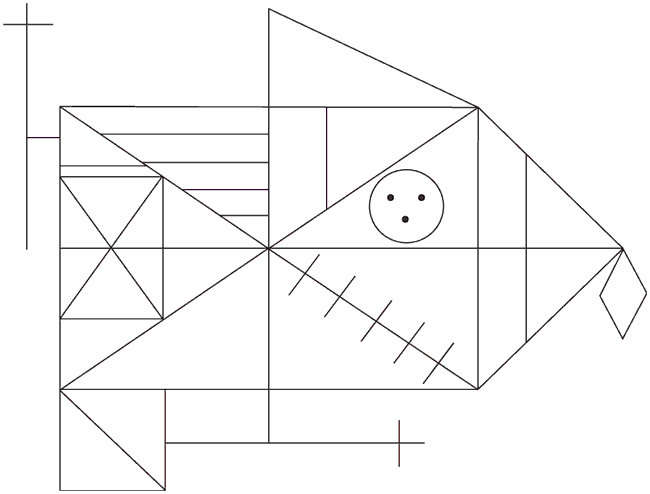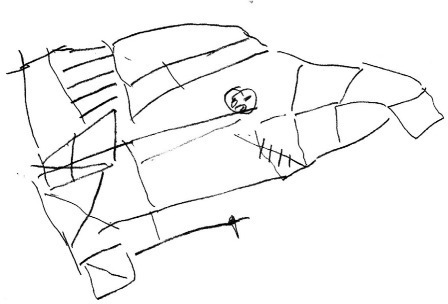Happy block five, everyone! Actually, happy start of fifth block’s second week. First week flew by, as usual. My name is Jordyn for any of you who may not know me. I am a senior neuroscience major, biochemistry minor. I’m currently taking Human Neuropsychology, a 400-level senior seminar course with professor Kristi Erdal.
The class is fantastic so far. For so many reasons. To start, the subject matter is undoubtedly intriguing. Neuropsychology is the study of how the structure and function of the brain influence and mediate psychological processes (like memory or attention) and behavior. In our class we are talking a lot about what can go wrong and what deficits can arise from an insult to the brain. An insult may be physical trauma from a car accident, it could be death of brain tissue from a stroke, or it could be chemical damage from a toxin. Depending on the type of insult, and its location in the brain, a variety of deficits may develop. Discovering what those deficits are and subsequently leading the patient down the road to recovery are some responsibilities a clinical neuropsychologist may take on. Kristi, our professor, has training in this area. During class, she oftentimes includes personal stories of the types of injuries and deficits she’s seen in her patients.
Kristi is the second reason class has been fantastic so far. Kristi is fun to listen to. She always has interesting stories to add to lecture. She uses funny voices. She makes lecture an experience and something to look forward to. She’s entertaining. I highly recommend taking a class with her if you can. I will be taking one more course with her, Abnormal Psychology 7th block this spring, and I can’t wait.
This class is also great because of the students. It’s filled with bright, fun, passionate and dedicated people. Many of them, but not all, I have had classes with before. Your fellow peers in a class can really make or break the class, and I lucked out on this one— they’re all great.
The first day of week one consisted of going through a brief history of Neuropsychology and learning numerous vocab words and acronyms important to this field of study. We talk a lot in acronyms — TBI, MTBI, MRI, PET, VIQ, FSIQ, WAIS, etc.
Once we built a foundation of the language used by neuropsychologists we got to dive into the really fun stuff. We learned about different imaging techniques for the brain, and what each of these can tell you. MRI scans can show quite detailed images of the brain, but don’t tell you anything about the function of the brain. PET scans and fMRI scans can tell you about function and what parts of the brain may be active during a specific task, but have less resolution than strictly an MRI. I had learned about many of these imaging techniques before, but it was nice to learn more in depth what each can tell you and when they are appropriate to use.


Something else I really appreciate about Kristi is how interactive her classes are. Wednesday we talked about different neuropsychological assessments. How do we test somebody’s mental status? Their language? Visual-spatial functioning? Memory? Intelligence? What about executive functioning? Rather than a boring lecture of “this test can be used to test __________”, Kristi brought out neuropsychological tests and we ran through many of them ourselves. For example, the Rey Complex Figure can be used to test visual-spatial functioning.

A person is shown an image, gets to view it for a short period of time, and then the image is taken away and the individual must draw the image. How the individual approaches drawing the figure, and what the figure looks like when they’re finished can provide insight regarding the health of parts of the brain important for visual-spatial abilities. We did this in class, and although many of us forgot some of the details, we were able to draw the figure with proficient success. However, an individual with damage to the right hemisphere may only draw the finer details of the image and lose sight of the overall, holistic image. Simple tests like this are very telling about brain functioning (if administered and interpreted appropriately).

To end first week, we talked about perceptual disorders. We talked about disorders involving vision, hearing and tactile (touch) sensations. I could go on for hours (or, I guess, pages?) about these disorders. I’ll tell you about one of the most fascinating ones. Anton’s Syndrome is a visual perceptive disorder. Individuals with this disorder are blind, but they’re unaware of it. Think about that for a minute. Somebody cannot see the world around them, but they believe and act as if they can. How this type of deficit can arise is mind boggling, and the precise anatomy of the disorder is still incompletely understood. But essentially, in addition to damage that resulted in the blindness, there is a disconnect between the part of the brain that allows for vision and the area of the brain that allows for conscious awareness that you are in fact seeing. Patients may come up with excuses as to why they bump into chairs when walking or why they can’t identify an object when asked to do so visually. They may say “Oh, I just wasn’t paying attention when I bumped into that, clumsy me” or “Ahhh, I’m wearing my old glasses, can you bring it closer?” This is just ONE of many disorders we discussed on Friday alone. THEY ARE ALL SO COOL TO LEARN ABOUT. This coming week, we will learn about motor disorders, attentional disorders and language disorders. I am so excited. Something else unique about this class (and many other 400-level seminar courses in the psychology department) is that we will be learning from our peers. Rather than Kristi lecturing from now on, we will learn from our peers and we will teach our peers. It is an intimidating experience at first, but it is an incredibly worthwhile experience for everyone involved (my last class, PY433 Neuropharmacology was set up the set up the same way). I will be lecturing with another peer on emotional disorders the end of third week, and I’ll be sure to share my experience from the preparation of the lecture to the delivery of it when the time comes.
If you couldn’t tell already, I love this class, and I look forward to sharing my experience with you all!
Awesome post!! I’ll be following Jordyn- you are aiding the jealousy I have from being unable to take the course!